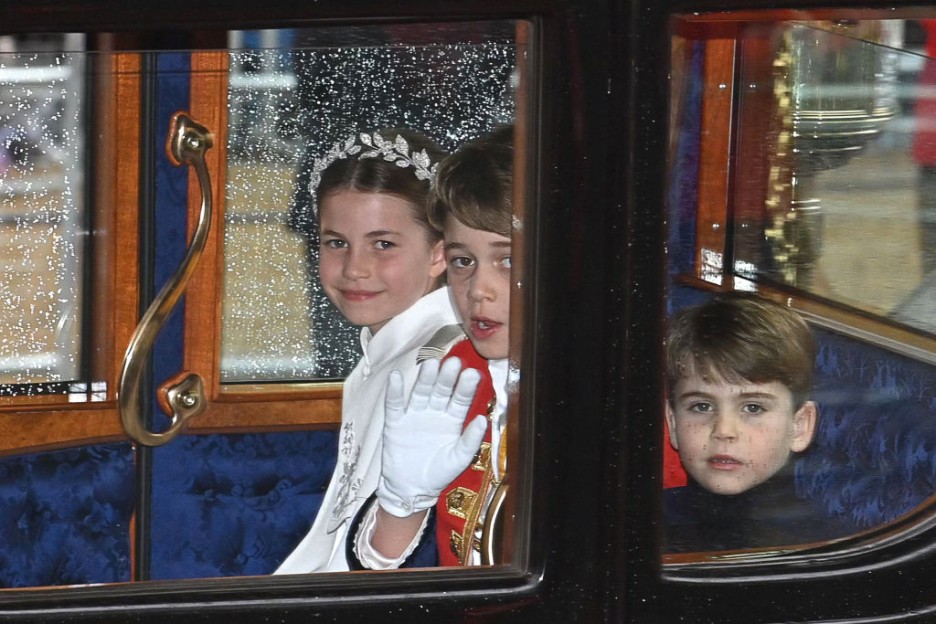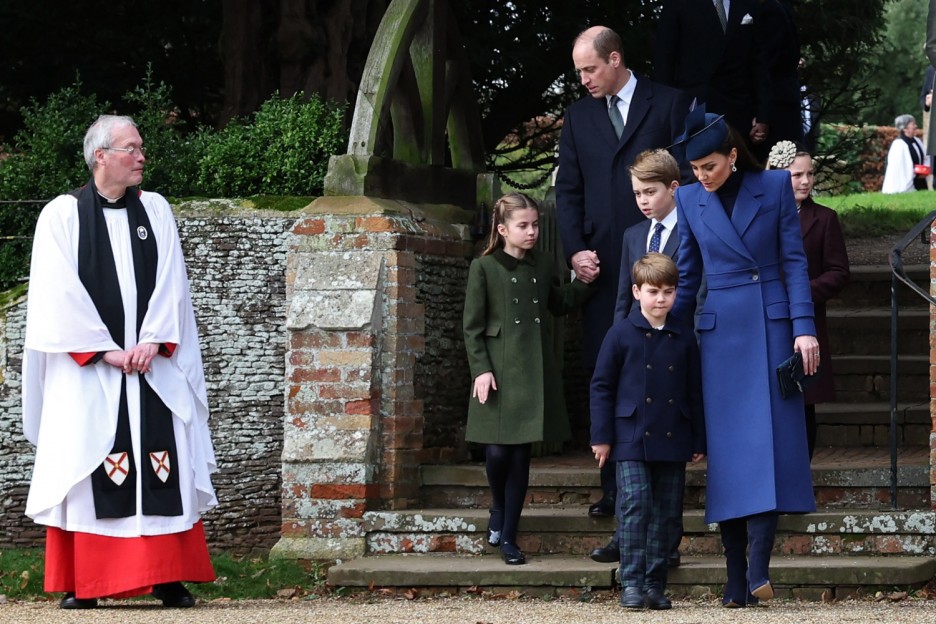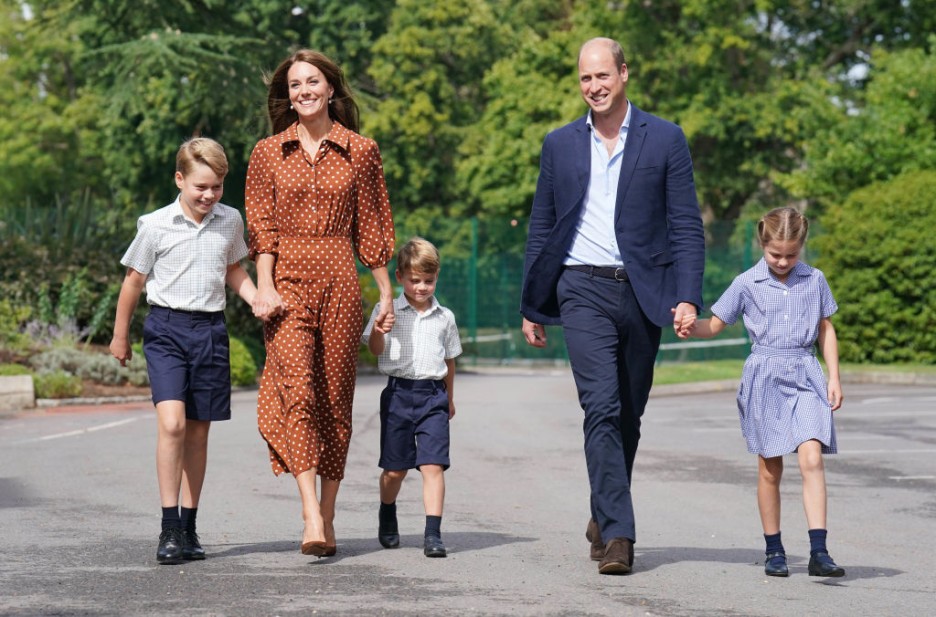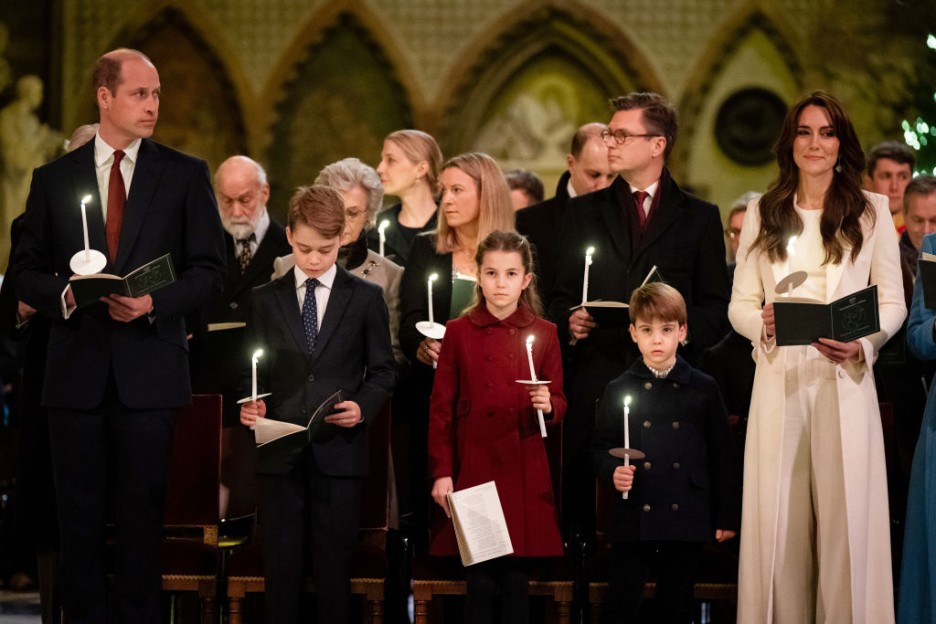Prince William, Kate Middleton's Kids Could Be Forced To Serve In Military At 18 If Sunak's Proposal Passes

Prince William and Kate Middleton's three children would not be exempt from performing a year of mandatory military or civilian national service alongside other British teenagers under U.K. Prime Minister Rishi Sunak's new proposal.
On Sunday, Sunak vowed to bring back mandatory national service for the first time in more than 60 years if the governing Conservative Party wins the U.K. general election on July 4.
According to Sky News, the Conservative Party has confirmed that royal children would be expected to turn out for the scheme, which would require all teenagers, regardless of gender, to take part in national service when they turn 18.
British Foreign Office minister Anne-Marie Trevelyan told the outlet that while the royal commission has not yet finalized the details and scope of the mandatory program, the "vast majority" of 18-year-olds would be expected to participate.

"Fundamentally, the Prime Minister has been clear this would be for the vast majority of our young people, our 18-year-olds, this would be a mandatory part of both their continued education and journey to adulthood," Trevelyan told the outlet.
If national service does end up being revived, the Prince and Princess of Wales' eldest son Prince George, 10, would have to join when he turns 18 in July 2031, the Daily Mail noted.
He would be followed by his younger sister, Princess Charlotte, 9, in a year and brother Prince Louis, 6, in three years.
Princess Beatrice's daughter Sienna, Princess Eugenie's sons August and Ernest, and Prince Edward's son James would also be eligible to take part once they reach 18.

According to Sunak's proposal, teenagers can take part in the program either by doing unpaid volunteer work in their local community for one weekend a month for 12 months or taking a full-time role in the armed forces for a year.
Those who sign up for community volunteering would be placed with organizations such as the police, fire service, the National Health Service and charities.
On the other hand, those who take the military route would need to undergo tests before they can take up one of the 30,000 available spots.
The young people who succeed in getting a role in the armed forces would be paid but are not expected to see combat.

The volunteers would "learn and take part in logistics, cyber security, procurement or civil response operations," the Conservative Party said.
While the proposed plan does not compel the young people to serve in the military, Home Secretary James Cleverly said on "Sunday Morning With Trevor Phillips" that those who go for the armed forces placement "will be motivated to join the military" after their time there.
It is not yet known who would be exempt, but the previous U.K. national service enforced from the '40s to '60s excluded blind people and those with a mental illness.
Cleverly said refusal to take part in the program would have no criminal sanctions.
However, it is unclear how the Conservatives plan to make the scheme mandatory.





